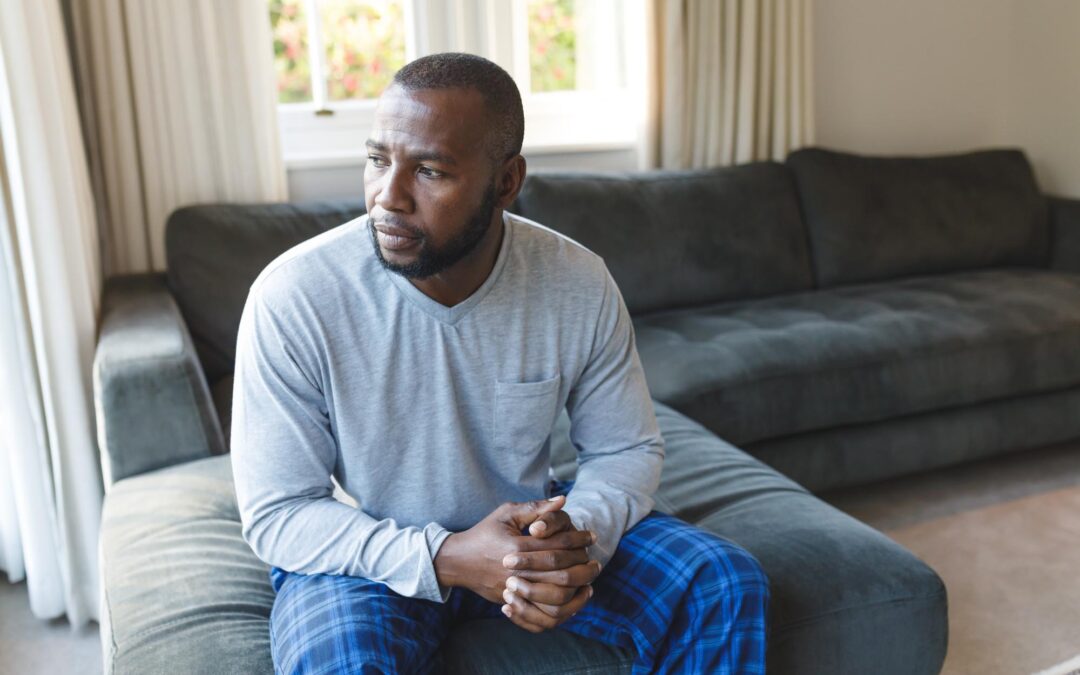Introduction
Baclofen is a powerful prescription medication primarily used to treat muscle spasticity and certain neurological conditions. This GABA-B receptor agonist has gained attention for its effectiveness in managing alcohol dependence and various forms of muscle-related disorders.
While baclofen offers significant therapeutic benefits, stopping this medication abruptly can trigger Baclofen Withdrawal Syndrome (BWS) – a potentially serious condition that requires careful management. The severity of withdrawal symptoms can range from mild discomfort to life-threatening complications, making proper understanding and management crucial.
Key aspects of baclofen withdrawal include:
- Physical symptoms like tremors and muscle spasms
- Psychological effects such as anxiety and confusion
- Potential severe complications without proper tapering
- Need for medical supervision during discontinuation
At CNV Detox in Los Angeles, we understand the complexities of baclofen withdrawal. This comprehensive guide will walk you through the essential aspects of BWS, including the identification of symptoms and proven strategies for safe tapering. You’ll learn how to recognize warning signs and understand the importance of professional medical support throughout your withdrawal journey.
Incorporating Medication-Assisted Treatment (MAT) into your recovery plan can significantly enhance the effectiveness of your detox process.
Understanding Baclofen and Its Role in Treatment
Baclofen acts as a powerful muscle relaxant by targeting GABA-B receptors in your brain and spinal cord. This mechanism creates a calming effect on your nervous system, reducing muscle tension and spasms. The medication works by mimicking the natural neurotransmitter GABA, which helps regulate muscle movement and tone.
Primary Medical Uses:
- Treatment of spasticity in multiple sclerosis
- Management of muscle spasms from spinal cord injuries
- Relief from cerebral palsy symptoms
- Control of chronic hiccups
- Treatment of alcohol use disorder (in some countries)
The medication’s effectiveness stems from its ability to cross the blood-brain barrier, allowing it to act directly on your central nervous system. When prescribed for spasticity, baclofen helps restore normal muscle function by reducing excessive muscle contractions and improving movement control.
Typical Dosage Forms:
- Oral tablets (10-25mg)
- Intrathecal delivery (direct spinal cord administration)
Your healthcare provider might start you on a low dose and gradually increase it based on your response. This approach helps minimize side effects while achieving optimal therapeutic benefits. The intrathecal administration method delivers baclofen directly to your spinal fluid, making it particularly effective for severe spasticity cases that don’t respond well to oral medication.
In addition to its medical uses, baclofen has also been explored as a potential treatment for alcohol use disorder. However, managing such a condition often requires a comprehensive approach that includes detoxification and rehabilitation programs. For those seeking help in this area, facilities like CNV Detox in Los Angeles offer top-tier medically assisted drug and alcohol detox, rehab, and addiction treatment services.
Recognizing Baclofen Withdrawal Syndrome (BWS)
Baclofen Withdrawal Syndrome (BWS) can develop when you stop taking baclofen abruptly or reduce your dosage too quickly. The severity of BWS varies significantly among individuals, ranging from mild discomfort to life-threatening complications.
Common Physical Symptoms
- Muscle-Related Issues: Increased muscle spasticity, muscle rigidity, tremors, and involuntary muscle contractions.
- Autonomic Disturbances: Elevated blood pressure, rapid heart rate, excessive sweating, fever, and difficulty breathing.
- Gastrointestinal Problems: Nausea, vomiting, loss of appetite, and diarrhea.
Psychological and Cognitive Symptoms
- Mental State Changes: Severe anxiety, agitation, confusion, depression, and insomnia.
- Severe Manifestations: Visual or auditory hallucinations, delirium, psychosis, and altered consciousness.
Critical Warning Signs
Seek immediate medical attention if you experience:
- Seizures
- Severe hallucinations
- Extreme confusion
- Loss of consciousness
- Severe muscle rigidity
- High fever
The intensity of BWS symptoms can be unpredictable and potentially dangerous. Factors such as your daily dosage, duration of use, and individual physiology influence the severity of withdrawal symptoms. Some patients report experiencing mild anxiety and muscle tension, while others face more severe complications requiring immediate medical intervention.
BWS symptoms can manifest within 24-48 hours of discontinuing baclofen. The risk of developing severe withdrawal symptoms increases significantly if you’ve been taking high doses (>100mg daily) or using baclofen for extended periods.
Medical professionals at CNV Detox observe that psychological symptoms like anxiety and confusion can be particularly challenging for patients. These symptoms may persist longer than physical manifestations and require specialized support during the withdrawal process.
Timeline and Severity of Symptoms During Withdrawal
Baclofen withdrawal symptoms typically follow a predictable pattern, with initial symptoms appearing 12-72 hours after the last dose. The severity and duration of symptoms vary based on factors like dosage and length of use.
Early Stage (Days 1-3)
- Mild anxiety and restlessness
- Increased blood pressure
- Sleep disturbances
- Muscle tension
Peak Stage (Days 4-7)
- Severe psychological symptoms
- Potential seizures
- Hallucinations
- Extreme confusion
- Peak physical discomfort
Late Stage (Days 8-14)
- Gradual decrease in symptom intensity
- Lingering anxiety
- Mild cognitive issues
- Return of spasticity symptoms
For individuals taking high doses (>100mg daily), withdrawal symptoms can persist up to 4 weeks. Rapid discontinuation increases both severity and duration of symptoms, highlighting the critical need for proper medical supervision during the withdrawal process.
The withdrawal timeline shares similarities with alcohol and benzodiazepine withdrawal, as these substances affect similar neural pathways. Recognizing these patterns helps medical professionals adjust treatment strategies and support measures throughout the withdrawal process.
Risk Factors for Severe Withdrawal Symptoms
Several key factors increase your risk of experiencing severe baclofen withdrawal symptoms:
- High Daily Dosage: Taking more than 100mg per day puts you at heightened risk for intense withdrawal effects
- Extended Usage Period: Using baclofen continuously for over 3 months increases withdrawal severity
- Abrupt Discontinuation: Stopping baclofen suddenly rather than tapering gradually
- Pre-existing Conditions: Having a history of:
- Seizure disorders
- Anxiety or depression
- Substance use disorders
- Neurological conditions
Medical Risk Factors:
- Liver or kidney dysfunction affecting baclofen metabolism
- History of adverse reactions to medication changes
- Taking other GABA-affecting medications simultaneously
Your personal health profile plays a crucial role in determining withdrawal severity. Patients with multiple risk factors need specialized tapering protocols under close medical supervision. The presence of any risk factors requires a more conservative approach to dosage reduction, with smaller decrements spread over a longer period to maintain safety and comfort during the withdrawal process.
Safe Tapering Strategies for Baclofen Withdrawal Management
Developing a safe tapering strategy requires careful consideration of your current baclofen dosage and individual medical circumstances. Here’s a detailed breakdown of recommended tapering approaches:
High-Dose Tapering (>100 mg/day)
- Reduce dose by 10-15mg every 2-3 days
- Slower reduction rate when reaching doses below 60mg
- Extended tapering period of 3-4 weeks minimum
Low-Dose Tapering (<100 mg/day)
- Decrease by 5-10mg every 3-4 days
- Maintain consistent dosing intervals
- Total tapering duration of 2-3 weeks
Medical Supervision Requirements
Professional medical oversight during baclofen tapering is non-negotiable. Your healthcare provider will:
- Monitor vital signs and withdrawal symptoms
- Adjust tapering schedule based on your response
- Provide immediate intervention if complications arise
- Prescribe supporting medications when needed
Treatment Setting Options
Inpatient Treatment suits patients who:
- Take high doses (>100 mg/day)
- Have co-existing medical conditions
- Experience severe withdrawal symptoms
- Need 24/7 medical supervision
In such cases, facilities like CNV Detox in Los Angeles, California, offer comprehensive medical detox services. They accept new patients and provide same-day admission for drug and alcohol sub-acute detoxification and residential rehabilitation.
On the other hand, Outpatient Treatment works for individuals who:
- Take lower doses
- Have stable medical histories
- Show mild withdrawal symptoms
- Maintain strong support systems
Your healthcare provider at CNV Detox will assess your specific situation to determine the most appropriate tapering strategy and treatment setting. This personalized approach ensures your safety while maximizing the effectiveness of the withdrawal process.
Remember to report any unusual symptoms or concerns during your tapering journey. Your medical team might adjust the schedule based on your body’s response to ensure a comfortable transition off baclofen.
If you find yourself struggling with alcohol withdrawal during this period, know that CNV Detox also provides top-rated alcohol addiction treatment including detox and rehab in Los Angeles.
For those interested in understanding more about the complexities involved in managing such withdrawals, it’s worth noting that there are various research studies available that delve into different aspects of medication withdrawal management, which could provide further insights into safe tapering strategies and their implications on patient health.
Comprehensive Treatment Approaches for Baclofen Withdrawal Recovery
Managing baclofen withdrawal requires a multi-faceted treatment approach tailored to each patient’s specific needs. Medical professionals at specialized detox facilities employ various medications and therapeutic strategies to ensure a safe recovery process.
Medications That May Aid in Alleviating Baclofen Withdrawal Symptoms
Several medications can help manage specific withdrawal symptoms during baclofen detoxification:
1. Anticonvulsant Medications
- Gabapentin
- Pregabalin
- Phenytoin
These medications help prevent seizures and reduce nerve pain.
2. Antianxiety Medications
- Short-term benzodiazepines
- Beta-blockers
These medications help manage anxiety and autonomic symptoms.
3. Sleep Aids
- Non-habit forming sleep medications
- Melatonin supplements
These options help regulate sleep patterns during withdrawal.
4. Pain Management
- NSAIDs for muscle pain
- Acetaminophen for headaches
These medications address physical discomfort.
Medical professionals carefully monitor the use of these supplementary medications to prevent potential interactions or the development of new dependencies. The selection of specific medications depends on:
- Individual withdrawal symptoms
- Medical history
- Current health status
- Potential drug interactions
- Severity of baclofen dependence
Regular assessment of medication effectiveness allows healthcare providers to adjust treatment plans as needed, ensuring optimal symptom management throughout the withdrawal process.
Seeking Professional Help For Safe Management Of Your Baclofen Dependency And Withdrawal Symptoms
Professional medical supervision is essential for safely managing baclofen withdrawal. At CNV Detox in Los Angeles, our experienced medical team provides comprehensive support through every stage of the withdrawal process.
Key services include:
- 24/7 Medical Monitoring – Medical evaluation to assess your current health status and withdrawal risk along with continuous assessment of vital signs and withdrawal symptoms
- Customized Tapering Plans – Individually tailored schedules based on your current dosage and medical history
- Emergency Response Capability – Immediate medical intervention if severe symptoms develop
- Dual Diagnosis Treatment – Addressing both physical dependency and underlying conditions
When to seek immediate medical help:
- Severe confusion or disorientation
- Seizures or convulsions
- Extreme anxiety or panic attacks
- Hallucinations
- Rapid heart rate or blood pressure changes
You don’t need to navigate baclofen withdrawal alone. Our team at CNV Detox is ready to help you safely manage your withdrawal symptoms and begin your recovery journey. Contact us today to learn about our personalized treatment programs and take the first step toward reclaiming your health.





